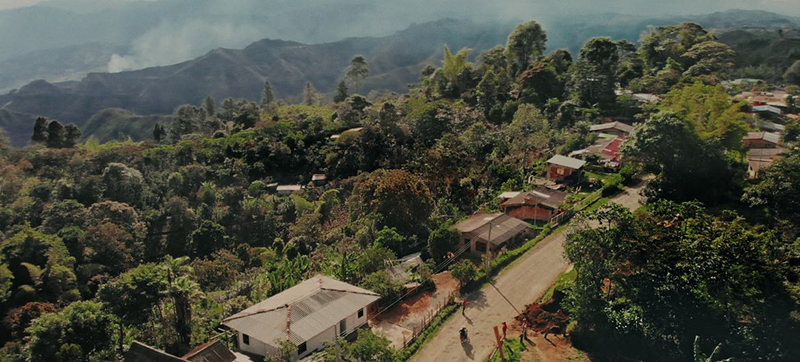Colombia: UN mission to verify rural reform and indigenous representation in peace process

New York: There are plentiful opportunities ahead for peacebuilding in Colombia, the head of the UN Verification Mission in the country told the Security Council on Wednesday.
Carlos Ruiz Massieu welcomed recent Government actions on rural reform and greater equality, in line with the 2016 Peace Agreement between the Government and the FARC EP militia group that ended five decades of civil war.
“The Council’s decision today to authorize the expansion of the Mission’s mandate to include the Agreement’s comprehensive rural reform and the ethnic chapter in its verification tasks will enable the Mission to increase its contribution to peace in Colombia,” said Mr. Massieu, speaking after its unanimous adoption of a Resolution 2673.
The Ethnic Chapter is designed to ensure representation and oversight for indigenous and marginalized groups in forging peace.
Addressing deep inequalities
Colombia’s new government, under President Gustavo Petro, took office in August.
Last week, legislation was signed to enact the Ministry of Equality, which will be headed by Vice-President Francia Marquez, the first Afro-Colombian woman to hold the position.
The new institution seeks to address deep inequalities affecting women, indigenous people and Afro-Colombians, said Mr. Massieu.
“It can be certainly an important instrument for advancing the goals of the peace agreement by helping to bridge disparities within Colombian society,” he added.
Ms. Marquez attended the Council meeting, and the UN envoy expressed condemnation for the attempt against her life, reported the day before.
He echoed the Secretary-General’s praise for the government’s agreement to purchase land for rural communities and increase budgets for agriculture.
“Rural reform is now and finally clearly moving to the center of efforts to build a more peaceful and prosperous Colombia,” said Mr. Massieu.
“This year is also key to advancing outstanding legislation to implement the Peace Agreement. Victims’ representatives in Congress, as well as members of political parties from across the spectrum, will all have a fundamental role to play,” he added.
Supporting former combatants
Success in reintegration is a key component in rebuilding stable and lasting peace in Colombia, and the Mission chief pointed to other positive steps, such as the extension of the basic national income, through 30 June.
The move will ensure that thousands of former combatants will have access to a basic monthly salary.
Mr. Massieu said it is essential that support is available to men and women committed to transitioning to civilian life, despite enormous challenges and threats.
Violence still persists
However, he regretted that violence against indigenous communities, social leaders and former FARC EP members is still ongoing, more than six years after the signing of the peace deal.
He highlighted the need to ensure coordinated implementation of the provisions in the Agreement on security guarantees.
‘Total peace’ policy
Mr. Massieu further reported that while the Colombian Government is pressing forward with implementing the Agreement, engagement with illegal armed groups continues under its “total peace” policy.
The authorities and the National Liberation Army (ELN) concluded a first round of peace talks in Venezuela last month, with another round heading to Mexico in the coming weeks.
“The parties’ decision to reinitiate discussions is widely supported in Colombian society and is valued especially by communities affected by the conflict in several regions,” he said.
Following a request from the sides, the UN Secretary-General agreed for the envoy to “permanently accompany” the dialogue process.



